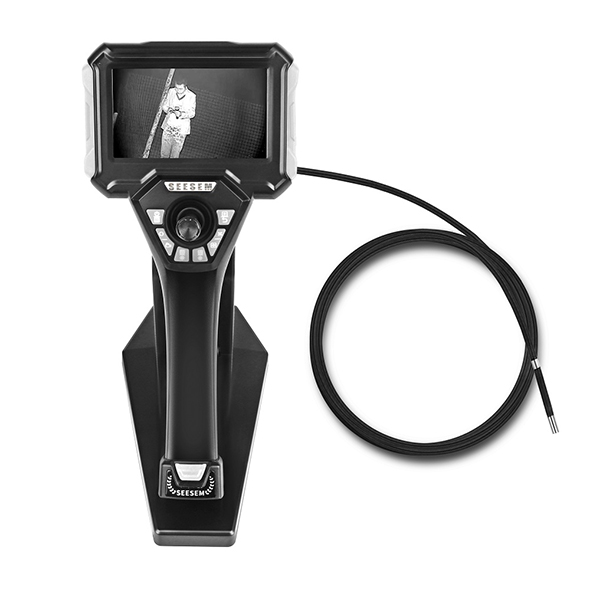Industrial Videoscope Selection and After-Sales Considerations
Introduction: Industrial videoscopes have become essential tools for inspection and maintenance in various industries. Choosing the right videoscope and ensuring excellent after-sales support are critical for efficient operations and cost-effective maintenance. In this article, we will explore the key factors to consider when selecting an industrial videoscope and the essential after-sales considerations to maximize the benefits of this advanced inspection technology.
- Selection of Industrial Videoscope:
1.1 Purpose and Application: Before purchasing an industrial videoscope, clearly define the intended purpose and application scenarios. Different videoscopes may possess unique features and suitability for specific tasks, such as aircraft maintenance, automotive inspections, or manufacturing quality control.
1.2 Image Quality: Image quality is paramount for effective inspection. Opt for a videoscope with high resolution, clarity, and color accuracy to facilitate easy detection of defects and anomalies.
1.3 Probe Diameter and Length: Select the appropriate probe diameter and length based on your inspection requirements and the constraints of the working environment. Smaller diameters and flexible lengths are ideal for accessing confined or intricate spaces.
1.4 Illumination System: An efficient illumination system is essential for inspecting dark or dimly lit areas. Check the videoscope’s lighting capabilities to ensure ample visibility during inspections.
1.5 Protection Rating: For rugged environments, ensure the chosen videoscope has a sufficient protection rating, such as waterproof and dustproof features, to withstand challenging conditions.
1.6 Field of View: Different field of view options are available to suit various applications. Choose a field of view that matches your inspection needs and provides a comprehensive view of the target area.
1.7 Control and Operating System: Consider the ease of use and flexibility of the videoscope’s control and operating system. A user-friendly interface will enhance the efficiency of inspections and reduce the learning curve for operators.
1.8 Battery Life: If inspections need to be conducted in areas without a power source, pay attention to the videoscope’s battery life, ensuring it can sustain operations for an extended period.
1.9 Durability and Reliability: Select a videoscope manufactured by reputable brands known for their durability and reliability. A robust device will minimize repair and replacement frequency, saving costs in the long run.
- After-Sales Considerations:
2.1 Warranty Policy: Before making a purchase, inquire about the manufacturer’s warranty policy, including the duration and scope of coverage.
2.2 Post-Purchase Support: Ensure the manufacturer or supplier offers comprehensive post-purchase support, including technical assistance, training, and repair services.
2.3 Repair and Replacement: Understand the procedures for device repairs and replacements, including the timeframes and costs involved.
2.4 Genuine Parts: When seeking repairs or replacements, always opt for genuine certified parts to maintain the device’s performance and quality.
2.5 Regular Maintenance: Adhere to the manufacturer’s recommended maintenance schedule to keep the videoscope operating reliably and efficiently.
2.6 Training Support: Ensure the manufacturer or supplier provides training support for using and maintaining the equipment, improving work efficiency and reducing the risk of errors.
2.7 Technical Updates and Upgrades: Verify whether the videoscope supports future technical updates and software upgrades to ensure it remains up-to-date with the latest features and enhancements.
2.8 Customer Reviews: Before finalizing a purchase, review customer feedback and ratings to gauge the quality of the manufacturer’s after-sales service.
Conclusion: Selecting the right industrial videoscope and securing excellent after-sales support are vital for successful inspection and maintenance operations. By carefully considering the various factors during the selection process and ensuring reliable post-purchase assistance, businesses can leverage industrial videoscopes to enhance their efficiency and overall productivity.
Remember that a well-informed decision at the outset will lead to a more rewarding experience with the industrial videoscope in the long run.


